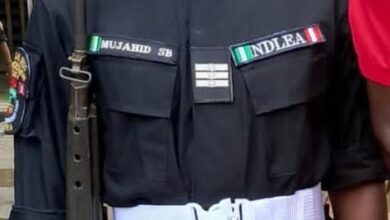FG meets with a German financing advisory to discuss funding for $1.9 billion, Kano-Maradi railway
The Nigerian government met with the German Financing Advisory Unit in an attempt to speed up the $1.9 billion Kano–Maradi railway’s funding.
According to NAN, this was revealed by the office of the Minister of Transportation, Rotimi Amaechi, after he met with the Nigerian Embassy’s financing advisory unit in Berlin.
The meeting was held with representatives of the German KfW-IPEX bank, who are serving as advisors in partnership with the African Finance Corporation for the Kano-Maradi rail project to secure funding, according to the Minister’s office.
So, what exactly are they saying?
Export Credit Agencies (ECAs) could come to Nigeria and be a part of the process, according to Amaechi, to ensure that everything followed their reestablished procedures and to avoid hiccups during the project’s execution.
The Minister told the German investors that Nigeria had laws in place for villagers to be resettled, and that “We avoided communities when choosing the right of way at the Ministry of Transportation. We’ll clear the entire Kano if we don’t do that.
Read also: MURIC requests that the Lagos State government issue a circular allowing hijab to be worn in public schools in the state
“We avoided communities and used the old line in Lagos because we would have to pay billions if we had to take a different route. In fact, we paid N7 billion in compensation just to keep working on the old line.
“This was not because the people had a right to the land, but because if nothing is done after 12 years, the land becomes theirs and you can’t just chase them out.
“Because the rail line was dormant, we still had to pay compensation. We had to treat them as if they were the original owners of the land in order to evict them. We did not wait for Europe to arrive. That is our rule.
“We also took into account the people in Kano-Maradi. We chose a right of way that is far from the communities, which increases the cost because the government will have to construct access roads from the rail line to the communities.
“Because of environmental concerns, we did so, but the Europeans want us to assume that people live along the route. Apart from Kano, there are none.
“In terms of your ESIA, I’m not sure what the law in Europe is. By giving notice, we’ve taken the first step. We’ve assessed the property. We haven’t paid because the payment is conditional on the contract being fulfilled.
He went on to say that the FG is prepared and committed to taking the next step of paying compensation because the project will create jobs.
Dr. Carsten Wiebers, Managing Director/Global Head, Aviation Mobility and Transport, KfW-IPEX Bank, recommended hastening the process of establishing consulting companies and other terms of reference in order to facilitate financing.
Read also: Stain on Our Soul: Global Covid Vaccine Rollout
Of course, your national regulations and laws are the first level of requirements. That’ll be taken care of by you.
What we’re trying to do is build a bridge between your needs and the demands of export credit agencies so that we can get you a loan that’s affordable.
“To persuade the ECAs’ decision-makers, evidence of the working group in the areas where the rail would be (actual site) all the way to Kano is required.
I believe the issue is one of documentation and communication. Wiebers stated that the procedure must be properly documented and certified.
What should you be aware of?
Remember that Nairametrics reported earlier this year that the Federal Government had discussed the funding of two rail line projects worth $14.4 billion with Standard Chartered Bank Plc, a London-based bank, as opposed to earlier plans to get the loans from Chinese banks. The eastern line, which connects Port Harcourt and Maiduguri, and the extension of the Lagos-Ibadan rail line to Kano are the two rail projects.




